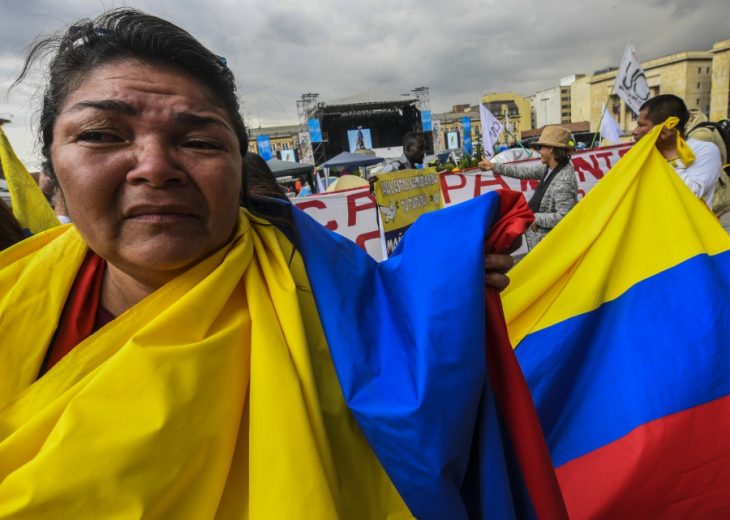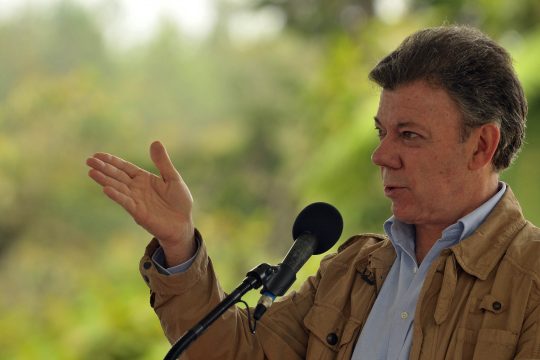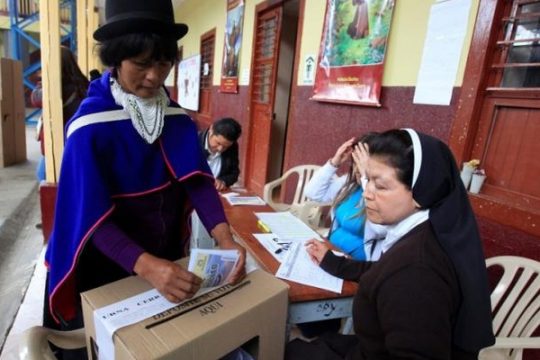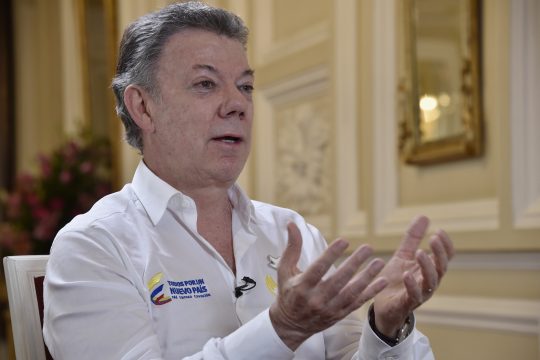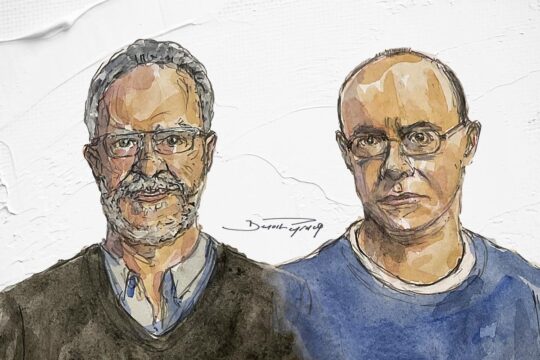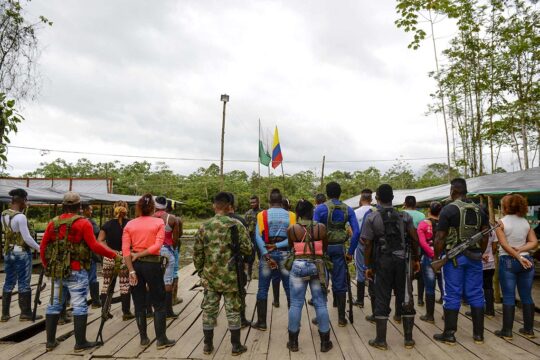In Colombia, FARC rebels and the government last week signed a revised peace deal to end half a decade of civil war. But the opposition says changes are only cosmetic, and it is not clear how justice will be applied to certain sections of the army.
“Unanimity is not possible”, chief government negotiator Humberto de la Calle had already warned. The peace agreement, narrowly rejected by voters on October 2 and signed in revised form on November 24, continues to divide Colombians. After studying its 310 pages, the opposition gave its verdict. The changes, according to opposition leader and former president Alvaro Uribe, are just cosmetic. “The government is trying to fool the public,” he said. Uribe’s supporters criticize the government of President Juan Manuel Santos for not sufficiently revising the justice chapter of the peace accord. The Federation of Colombian Victims of the Guerillas (FEVCOL) had called for 5-year prison sentences for FARC leaders and for them to be barred from election during that time. But these demands have not been met.
At the negotiations in Havana, this issue was key, as Colombian jurist Rodrigo Uprimny reminds us in a recent interview with JusticeInfo. “Even if I initially supported the idea of prison sentences, the FARC’s arguments against them are valid,” he said. “It is partly a question of dignity, because negotiating and then letting yourself be jailed by the enemy is to capitulate. The accord obliges them to recognize their wrongs and compensate victims, without going through that humiliation. And restorative punishments are more useful than jail. Their other argument is pragmatic: How could they direct the disarmament process from prison and ensure that the troops respect it?”
Transitional justice
The revised accord details the way transitional justice is to work. The text stresses that the Special Jurisdiction for Peace, to be set up under the agreement, will have full means to investigate FARC crimes, so as to ensure full confessions. Without full confessions, the rebels will not get the lighter punishment of “restricted freedom” for 5-8 years. An explanation is given of “restricted freedom”. FARC rebels may be forbidden to go beyond the village where they surrender their arms. The special court will set the hours during which they must carry out their restorative sentences, such as demining, and will set the times and conditions under which they can move beyond their restricted area. The Marxist rebel group also promises to declare all its assets, to compensate victims.
These clarifications go some way to answering the concerns of Human Rights Watch, which said the first accord was too vague on these points, and the Prosecutor of the International Criminal Court who welcomed the peace deal but said that “the paramount importance of genuine accountability – which by definition includes effective punishment – in nurturing a sustainable peace cannot be overstated. There are still weaknesses in the accord. It says that the rebels, even if they are convicted, can still sit in Parliament. “In effect, they will still be free,” says Colombian Senator Sofia Gaviria, who heads the FEVCOL and is sister of a governor killed in captivity by the FARC in 2004.
Victims
In addition, the new agreement seems to restrict the possibilities for the Special Jurisdiction for Peace to convict those who ordered the crimes, including the military, which was responsible for numerous extrajudicial executions. Giving in to pressure from a group of army officers, the government removed, a few hours before the signing ceremony, a paragraph citing Article 28 of the Rome Statute saying that officers and leaders of the armed group would be held accountable for crimes of their subordinates if they had explicit knowledge of the facts or should have done so given their position. This part has been replaced by wording to reassure the army. Only those who were in a position to “exercise real control over their subordinates in relation to the execution of a crime” may be convicted, and only if they were “informed of it before, during and after”. The FARC rejects this last minute change. “We think this will be a source of concern for the victims and the ICC Prosecutor,” they said in a statement that was hardly picked up in Colombia. “We wish to state that we oppose it.”
If the FARC’s desire to tell the truth appears sincere, the same cannot be said of the army. Several Generals and Colonels are currently under investigation for executions, massacres and disappearances, and refuse to recognize their criminal responsibility. The army is implicated in thousands of “false positive” cases, a practice that involved killing civilians and passing them off as rebels killed in combat. A recent report by the National Centre for Historical Memory estimates that Colombia has 60,600 disappeared people, more than all the dictatorships on the continent. Many of them were victims of this dirty war, on which the country’s élite are clearly refusing to shed light.



